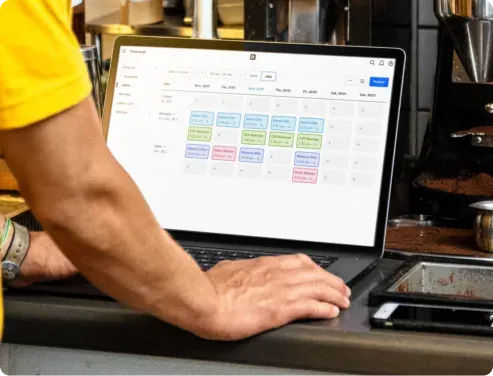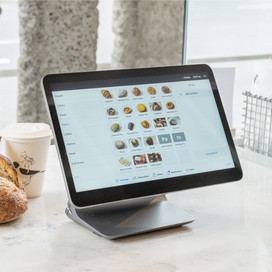This year has been a challenging one for many Australian businesses – particularly those in the retail, hospitality and service sectors, which have been strongly impacted by social distancing restrictions. However, now that coronavirus lockdown restrictions have started to ease, businesses are reopening and cash flow is starting to get back on track, another ongoing challenge has arisen — keeping staff motivated.
Here are some tips to help keep your staff motivated during the coronavirus crisis:
Make their safety your first priority
No one wants to feel unsafe when they come to work – and the coronavirus outbreak has made frontline staff feel even more exposed. It’s important to show your staff that you are putting their health and safety first during this difficult time. Ensure frontline employees are properly supported with the appropriate safety equipment, hand sanitiser, and any relevant training (for instance, the Australian Government’s COVID-19 Infection Control training).
Be empathetic to their personal situations
People are struggling with many different changes to their personal situations during this period – whether it be looking after children, loneliness or having their hours cut back at work. Consider allowing flexibility in their hours so that they can address new challenges and manage their work. You could also send helpful articles and resources from management to motivate employees working remotely and stay connected.
Other ways to show empathy towards your employees could be to give complimentary leave periods for rest and recuperation if it is feasible for your business, or send care packages to those who could benefit from one. Empathy from managers has also been strongly linked to job performance – for instance, a study by the Centre for Creative Leadership found that empathy is positively correlated with job performance, and managers that show empathy are seen to be higher performers by employees.
Check in regularly from a social perspective
It could be daily stand up meetings, or Friday night drinks/trivia over video call – find some ways to keep employees social and motivated that are still within the social distancing guidelines. It’s important that employees stay connected with one another and feel like a team through the pandemic.
Communicate changes clearly
Update employees on changes to the business as a result of the restrictions in place, or the economic impacts and how that may change the direction of the business moving forward where appropriate. Ways to do this could be a company wide email, an all-hands video conference, or using messaging technology such as Slack to stay connected. While weekly emails might be relevant as changes happen rapidly, they may need to be less frequent as life adjusts and changes slow down.
Show an interest in their professional development
Remote working or a change in the economic health of your business can make developing people professionally more difficult, or less of a priority. However, this will always be top of mind for your employees, especially at a time that has caused a lot of reflection about their career path and employment. Speak to them about their goals and how you can help them develop these during this challenging time (whether it’s personal or professional goals).
If you have employees working remotely – introduce ‘play, purpose and potential’
A study by the Harvard Business Review surveying 20,000 workers around the world at 50 major companies found that overall, working remotely was less motivating for people. They identified three factors that negatively impact motivation: emotional pressure, economic pressure and inertia. Three factors they found that motivated people were play (the joy found in work, such as problem-solving with colleagues), purpose (visibility of the impact of their work), and potential (connecting with other colleagues to teach and develop them). These factors are significantly impacted by working remotely, as the social aspect of work is somewhat removed.
However, there are some ways to introduce these back into the working environment – like organising social events over video call, putting time into their professional development and communicating the value of their work. Giving people the opportunity to experiment and solve problems that really matter can also help with motivation.
Reward people that are doing great work
Some people are going above and beyond during this time. They may feel that now, more than ever, they are not appreciated for the work they’re doing. When you recognise an employee for their good work, it will have a huge impact on their productivity. Some ideas of how to do this might be sending a team email to call out someone’s great work, having a monthly prize for an ‘above and beyond’ moment, or just telling someone when they’re doing a good job.
Want even more tips? Check out our guide of 10 scientifically proven ways to motivate employees.
![]()












